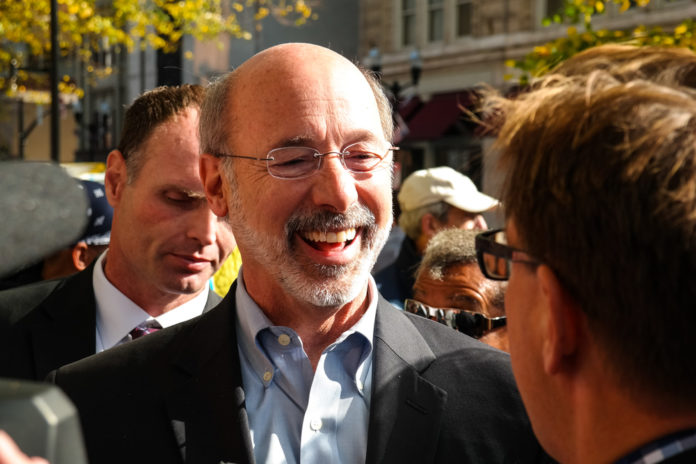Pennsylvania joins 23 other states that have legalized medical marijuana.
Last night, Pennsylvania Governor, Tom Wolf, signed Senate Bill 3 and legalized the use of cannabis for serious medical conditions including HIV/AIDS, ptsd, multiple sclerosis, chronic pain, cancer, and other qualifying conditions.
The new law will permit up to 150 dispensaries to operate throughout the state legally. Patients will be required to receive a prescription from a physician in order to acquire cannabis. Application fees are expected to net the state 10 million dollars within a year. A 5% sales tax will be placed on all medical marijuana purchases which should also net the state significant revenue. Personal grows will not be allowed under the new law. Additionally, smokeable flower will not be available. Instead, oils for vaporizing, edibles, topicals, and cannabis pills will be sold in dispensaries.
Governor Wolf released a statement saying the new law would “will improve the quality of life for patients and their families throughout Pennsylvania.” If qualifying conditions are met, both adults and children will be eligible to receive cannabis legally.
The bill had bi-partisan support within the state legislature. After Gov. Wolf attached his signature to the bill, Senator Daylin Leach (D-PA) said “We stopped being liberals and started being problem solvers, and we stopped being conservatives and started being compromisers.” Part of the cross party appeal relates to the growing problem of addiction to harder drugs. In regards to rising opioid use, State Senator Mike Vereb (R-Pa.) said “That’s the killer. What we are doing here today is the healer.”
Full implementation of the program is expected to take 18-24 months. However, patients will not have to sit idle and count the days on a calendar. During the time it takes for state officials to work out all of the new program’s details, residents of the Keystone State will be allowed to acquire cannabis through out of state dispensaries.










